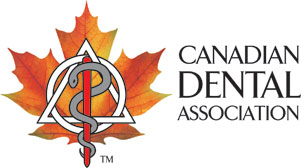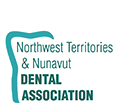 Dr. Robert MacGregor
Dr. Robert MacGregor
This year marks the culmination of CDA's successful transition to a new membership and governance model. Now that the new models are in place and the working relationship between CDA and the provincial dental associations is strong, CDA can focus on enhancing relationships with other groups in the broader dental community.
One group that CDA will be actively engaging with is the Association of Canadian Faculties of Dentistry (ACFD). The ACFD is an organization that works to advance university based dental teaching, research and management in Canada. CDA is pleased to be attending the upcoming ACFD biennial conference, where we will continue to develop our relationship and further our dialogue on examining the admissions process at our dental schools.
I believe the Canadian dental profession should continue to articulate its opinions on the selection of its future members. Although the profession has some input in this area through the accreditation process and the administration of the DAT, both CDA and ACFD can work together to ensure that the dental students of the future exhibit the ideals of professionalism and possess the variety of interests needed to meet the oral health needs of all Canadians.
This issue came up recently when I attended a national consultative forum on professionalism convened by CDA. Many of the presentations and subsequent group discussions were quite telling, especially those related to professionalism and admissions.
Dr. John Perry, the admissions officer for the University of Manitoba faculty of dentistry, gave a presentation on the admissions process and he noted that effective selection tools aim to assess a candidate's academic performance, psychomotor skills, communication skills and qualities of character. While some selection criteria are not related to personality traits, others like the CDA Structured Interview can examine a candidate's character and extracurricular activities. According to Dr. Perry, admission committees would be receptive to selection tools that might better identify professional attitudes and behaviours in prospective dentists.
CDA's Dental Admissions Working Group met with the deans of the 10 dental schools in March, to discuss how the admissions process might be adapted. CDA has agreed to dedicate resources to work with ACFD to potentially enhance the current range of selection tools. We will keep you informed of developments in this area.
CDA has a strong tradition of working closely with the Canadian academic community through our publications. JCDA continues to reach out to our colleagues in dental academia as a forum for publishing relevant oral health articles. JCDA has also collaborated with 6 Canadian dental faculties to produce special editions of JCDA, which featured articles from faculty members along with profiles of the people and programs that make our dental schools such dynamic learning environments.
Speaking of JCDA, the publication is moving in a new direction, focusing on knowledge translation and providing essential knowledge to dental practitioners. The incarnation of this new focus is jcda.ca, an online knowledge exchange hub for dentists.
Recently, jcda.ca and Dr. John O'Keefe were featured in a publication of the Canadian Institutes of Health Research's Institute of Musculoskeletal Health and Arthritis (IMHA). Dr. O'Keefe discussed his ongoing role as a member of IMHA's Partnerships and Knowledge Translation Committee and his experiences as a knowledge user in an IMHA research grant application for a project designed to reduce barriers to dentists becoming involved in online study clubs.
As CDA's relationships with other dental groups and the new jcda.ca continue to evolve, the input of all Canadian dentists will be essential.











